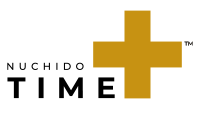Functional medicine works to address the root cause of health problems, by not just looking at individual symptoms, but looking at the body as an entire network. At Nuchido laboratories we share this vision, using systems pharmacology to develop our products. This approach is different from conventional single ingredient supplements because we look at the root cause of why cellular aging occurs and how to fix it, embracing the complexity that occurs in biology.
We used this technique to develop Nuchido TIME+, a next generation NAD+ supplement which is clinically proven to fix the root causes of NAD+ decline.
Keep reading to learn how Nuchido TIME+ can benefit your patients and how it works to fix the root causes of aging.
The majority of people have an NAD+ deficiency
NAD+ is a cellular co-enzyme which is critical in metabolic and signaling reactions. During metabolism NAD+ participates in redox reactions leading to the formation of ATP. Furthermore, NAD+ regulates a wide array of critical cell signaling pathways including DNA repair, antioxidant pathways, anti-inflammatory pathways, autophagy, circadian rhythm regulation and many more. [1]
Despite its critical role in maintaining cellular health the majority of the population has an NAD+ deficiency, this is because NAD+ naturally declines by around 50% every 20 years. Low NAD+ levels are associated with many symptoms of aging, including: fatigue and disrupted sleep patterns, brain fog and loss of mental energy, slower recovery and repair, reduced muscle strength and stamina.
NAD+ decline is exacerbated because of our lifestyles. A lack of exercise, smoking, alcohol consumption, diet of ultra-processed food and lack of quality sleep all accelerate NAD+ decline. NAD+ deficiencies are also associated with many of the common health problems found in our society.
Scientific research is continuously elucidating new benefits of NAD+ restoration. As NAD+ is found in every cell in the body the benefits of NAD+ restoration are extensive, because every biological system is dependent on NAD+. [2][3]

Nuchido TIME+ can benefit your patients who are looking to further optimize their performance and prevent the aging process or those who are looking to restore their health.
Nuchido TIME+ is the ultimate NAD+ supplement
Nuchido TIME+ differs from existing NAD+ boosting products on the market such as precursor supplements (NR / NMN), injections or IVs because we don’t just put a plaster on the problem, instead our formulation works to restore the cells youthful ability to make and recycle NAD+. Young cells are very efficient at making and recycling NAD+, this ability just gets switched off.
Precursor only supplements such as NMN / NR are first generation NAD+ boosters, which can cause further cellular damage if used in isolation - data shows they can cause methyl donor depletion and inadvertently drive inflammation. Furthermore, there is no evidence that NAD+ decline is caused by reduced availability of NAD+ precursors. [4]
NAD+ declines because older cells are unable to synthesize sufficient levels of NAD+, whilst simultaneously an accumulation of DNA damage and increasing levels of inflammation consume vast quantities of NAD+. Overall, this leaves the cell with an NAD+ deficit that contributes to the cellular aging process. Nuchido TIME+ fixes these problems and restores youthful NAD+ production while inhibiting the wastage of NAD+, so NAD+ can be used to promote cellular health.

Nuchido TIME+ formulation
Each ingredient in our formulation was included for its ability to target parts of the NAD+ network which have become dysfunctional with age causing NAD+ decline, these include:
- Flavonoids quercetin, rutin and troxrutin extracted from Sophora japonica for their ability to activate NAMPT and restore the cell’s youthful ability to recycle NAD+ via the Salvage Pathway.
- Alpha Lipoic Acid (ALA) for its ability to activate the AMPK pathway, which boosts NAD+ production by both increasing levels of the NAMPT recycling enzyme and promoting the conversion of NADH to NAD+ within the cell.
- Apigenin for its ability to inhibit CD38, an inflammatory molecule which is the largest consumer of NAD+.
- Epigallocatechin-3-gallate (EGCG) extracted from Green Tea Leaf for its ability to inhibit NNMT and therefore the excretion of NAM, to further encourage NAD+ recycling.
- The NAD+ precursor nicotinamide (NAM), the body’s preferred precursor. As cells can now recycle NAM into NAD+ its addition further enhances NAD+ levels.

Nuchido TIME+ is supported by clinical research. A randomised, double-blinded, placebo-controlled crossover clinical trial was performed on the Nuchido TIME+ dietary supplement. Participants were male and female, aged 20-80 years old.
The study demonstrated that:
- Nuchido TIME+ significantly increases cellular NAD+ after only 7 days
- Unlike NR or NMN it works by switching back on youthful cellular NAD+ production by reactivating NAMPT a key enzyme in the Salvage Pathway
- An increase in the longevity protein SIRT1, a downstream target of NAD+
- A reduction of inflammatory cytokines indicating that NAD+ is being directed towards beneficial processes rather than inflammatory CD38
- A reduction in biomarkers of glycation
- A reversal of biological age
The diverse protective and regenerative capacity of NAD+ is due to its ability to impact all the Hallmarks of Aging. With NAD+ declining exponentially during aging and being exacerbated by our modern lifestyles, the majority of the population can benefit from increasing their NAD+ levels with an NAD supplement. By supporting your patients cellular health with NAD+ you can increase their healthspan.
References
[1] Conlon, N. J. (2022). The Role of NAD+ in Regenerative Medicine. Plastic and Reconstructive Surgery, 150, 41S-48S.
[2] Covarrubias, A. J., Perrone, R., Grozio, A., & Verdin, E. (2021). NAD+ metabolism and its roles in cellular processes during ageing. Nature Reviews Molecular Cell Biology, 22(2), 119-141.
[3] Katsyuba, E., Romani, M., Hofer, D., & Auwerx, J. (2020). NAD+ homeostasis in health and disease. Nature metabolism, 2(1), 9-31.
[4] Conlon, N., & Ford, D. (2022). A systems-approach to NAD+ restoration. Biochemical pharmacology, 114946.
